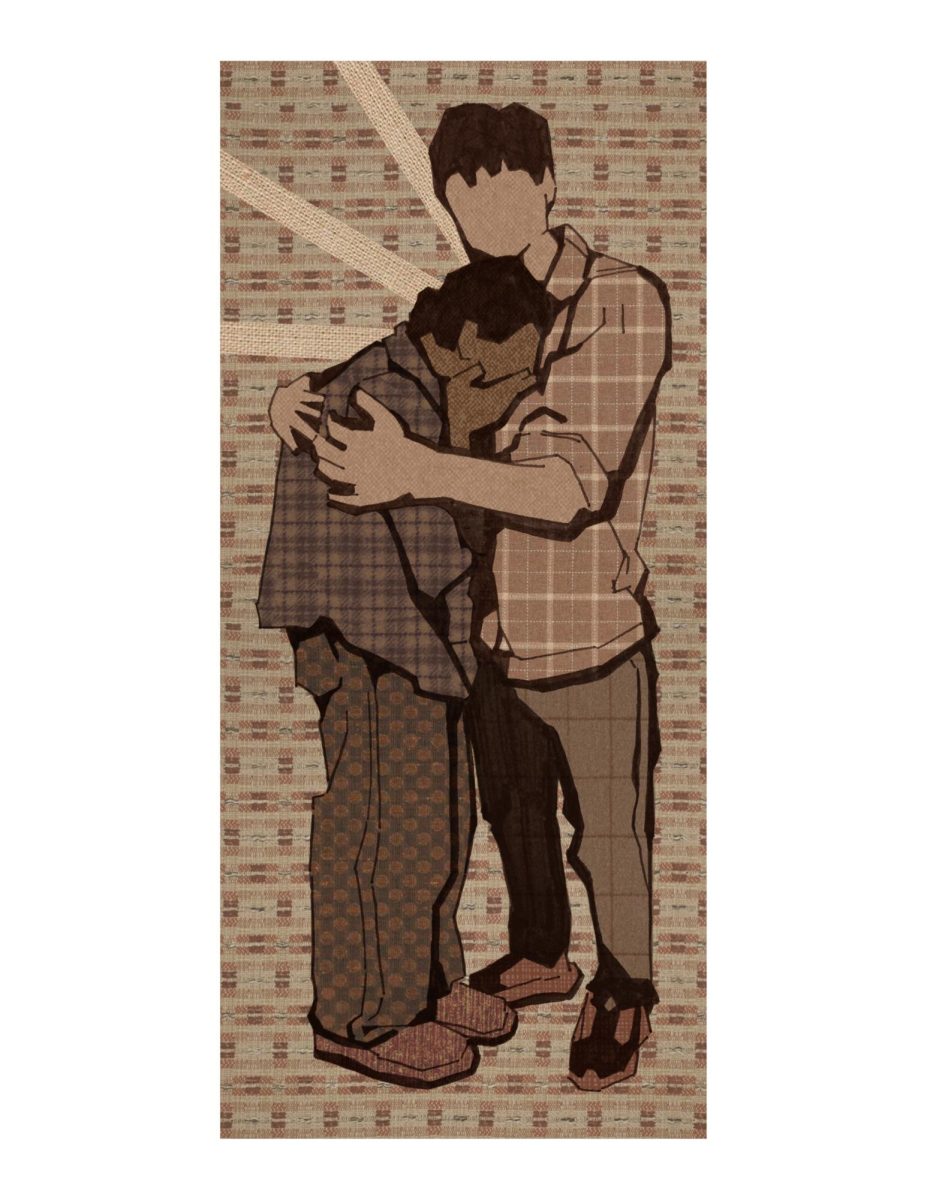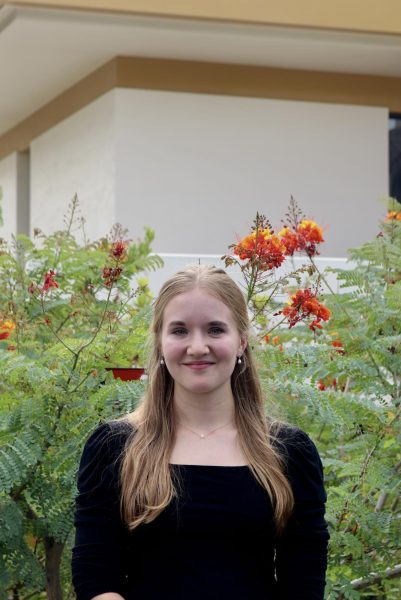The 2025-26 academic year has been marked by profound instances of tragedy and suffering both inside Biola and out. Students were faced with the abrupt passing of our beloved officer of campus safety, Chief O, the assassination of political activist Charlie Kirk, and the murder of a Ukrainian refugee, Iryna Zarutska. This isn’t to mention several instances of gun violence in the United States, coupled with intense, rising political tension on campus, in our community, and on social media. Yet, these are only tragedies that have been placed on public display. The students of Biola’s campus are undoubtedly grappling with devastation from personal issues such as the loss of family members, life-altering medical diagnoses, and more things that go completely unnoticed by those around them.
While grief has been prominent among the students of Biola in recent weeks, it is not an emotion that is exclusive to the campus. In all corners of the globe, grief is known and lived out, and individuals are experiencing distress and devastation over a multitude of tragedies. Therapy Route reports that as of 2024, 13% of individuals across the world suffer from PGD (Prolonged Grief Disorder). While Biola is not distinct in its familiarity with grief, it is distinct in its way of dealing with grief. Biola students attend to their grieving hearts in a way that is rooted in their dedication and faithfulness to God, which stems from the Christian environment they engage in.
It appears that its students’ grief has not subsided and will most likely persist in afflicting them for weeks or even months to come. Dr. Betsy Barber, a Professor Emeritus of Spiritual Formation and Psychology, has been meeting with individuals for therapy and spiritual direction, and commented on this matter.
“I can say that in nearly every appointment I’ve had recently, national tragedies have been brought up by the other person, and that they’ve been distressed and grieved over current events,” Barber said, “These topics do not seem to be going away.”
The students of Biola remain distraught by recent national tragedies and will inevitably remain so, for death, political violence, and the deliberate killing of others are not things that God’s children take lightly. As a matter of fact, these matters have always afflicted the hearts, minds, and souls of believers. The Bible has numerous instances of individuals coping with grief. In 1 Samuel 1:10, we see Hannah experience sorrow over her barrenness, and in Job 1:13-19, we watch Job find out that all of his livestock and children were murdered.
Even Jesus battles grief, as is seen when he mourns over the death of his dear friend, Lazarus. In John 11:35, it says, “Jesus wept.” However, the battle of grief has never been without the company of hope. Through every trial and tragedy that Christians faced, their faith and well-being were restored and uplifted through the hope that Christ provided. Revelation 21:4 succinctly articulates the hope we have in Jesus: “He will wipe every tear from their eyes. There will be no more death or mourning or crying or pain, for the old order of things has passed away” (NIV).
Believers today share this same hope. It is that which guides Christians and sets them apart from others in the grieving process. Despite the correlation between religion, spirituality, and the grief process being heavily understudied, there is research proving that a relationship with God alleviates grief and other mental health issues, such as depression, anxiety, and suicide.
Dr. Mike Ahn, the Dean of Spiritual Development, has witnessed how students of Biola have been doing their utmost to deal with grief in a way that aligns with their faith.
“There’s a way that God meets us in our grief, there’s a way to worship God through it, and I think dealing with it well is actually very important,” said Ahn, “And so I think students on campus have been trying to do it as best as they can.”
Dr. Mike Ahn, along with the rest of the Spiritual Development department, recognizes that since grief hit Biola, students have needed to lament. The department has made efforts not only to provide students with counseling and pastoral care but to offer them a space where they can lament with other students; Fives Chapel serves as one of those spaces. Recently at Fives, grieving students have been able to mourn with one another, pray over one another, and heal alongside one another. It is only on a Christian campus, like Biola, that students can find a place to mend their hearts and souls in such a way.
The profound emotional and spiritual support that Biola provides for students is steadfast and unabated. The Spiritual Development department has proven time and time again that they will spare no effort in ensuring that students are met at every point in their healing process. When Biola’s campus was met with grief earlier this year following the passing of a student studying abroad in Rome, the Spiritual Development department sent two pastoral caregivers overseas to care for her peers and classmates. These pastors still meet with some of these same students who have returned from Rome and are now back on campus.
Junior History major, April Lam, attests to the compassion and dedication that Biola has for its students. In recent times, she has witnessed and experienced how Biola walks with students through their heartache.
“When things happen, whether it’s privately or within our community, we are able to come together and bring our grief to the LORD,” said Lam, “I’ve had professors and other members of the Biola community who not only actively address…grief, but…provide true support through spiritual care and accommodations in schoolwork. To me, seeing people center their loss with the LORD is so powerful, especially since sometimes easily spoken condolences feel superficial.”
It isn’t a secret that Biola pushes its students to grow closer to God. However, it is through the tribulations and sorrows they face that reveal how their faith is being actively lived out. When students can bring their grief to Jesus, in the way that a Christian campus enables and implores them to, they are immediately met with the Wonderful Counselor. Dr. Mike Ahn explains how a relationship with Jesus allows students to better comprehend their grief and work towards healing and spiritual maturity.
“I don’t think grief is a faraway emotion from our God,” said Ahn, “I think grief is something that is part of the human experience, [and] God meets us and walks with us in it. I’m grateful that we have a God like that.”
However, grief within a Christian campus is not flawless by any means. Students who deal with grief on a Christian campus are vulnerable to various pitfalls, despite the spiritual spaces that are open to them. Grief within the faith is so much more than just accepting the loss of someone or something loved; it is about understanding why God has allowed what we love to be taken from us. We often fail to explain why suffering happens, yet we persist in our belief that God is benevolent; this creates profound internal conflicts that non-Christian individuals do not experience. Christian students are also susceptible to restricting themselves to the spaces on their campus. They may reject help from those who are not strictly within their Christian circle, whether those individuals be Christians or non-Christians. This not only limits individuals in the help they can receive, but it also limits them in the help they can provide others. By improperly dealing with their grief, they might neglect opportunities to pour love onto others and share the Gospel. Dealing with grief well on a Christian campus not only comes out to be a matter of emotional and spiritual healing, but it can also come out to be a matter of salvation within ourselves and others.







